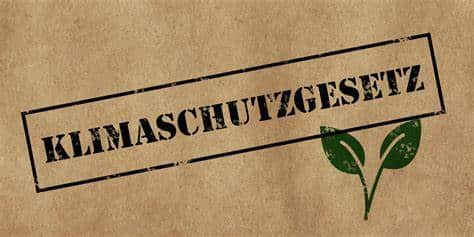What is the Swiss Climate Protection Act about?
In September 2022, the Swiss Parliament passed a new climate law. The aim of the federal law on climate protection targets, innovation, and strengthening energy security is to accelerate the switch to renewable energies. It stipulates that Switzerland should achieve a net zero emissions balance (climate neutrality) by 2050. The new law ensures a more climate-friendly investment and sets targets and interim goals for reducing emissions. Two billion Swiss francs are to be made available for the switch from oil, gas, and electric heating to climate-friendly heating. Subsidies amounting to 1.2 billion Swiss francs are to support companies in trade and industry that use innovative technologies for environmentally friendly production. The main focus of the “Federal Act on Climate Protection Goals, Innovation, and Strengthening Energy Security (Indirect Counterproposal to the Glacier Initiative)” is on this aspect.
Opposition from the SVP
Switzerland’s largest party, the Swiss People’s Party (SVP), is unhappy with the new climate law. It has successfully carried out the referendum. The SVP was able to collect more than twice the required 50,000 signatures. The vote will be held on June 18. The SVP described the new law as an “electricity guzzler” that would be harmful to both the economy and the population. By 2050, the goal of climate neutrality would mean a ban on gasoline, diesel, heating oil, and gas. The party claims that electricity demand will increase and household bills will rise by thousands of francs a year in the midst of an energy crisis.
Goals of the new law
Switzerland imports about three-quarters of the world’s energy. Energy sources such as heating oil, gasoline, diesel, and natural gas are imported from abroad. This makes Switzerland highly dependent. In addition, the climate is affected by the use of fossil fuels. With the “Federal Act on Climate Protection Goals, Innovation, and Strengthening Energy Security (KlG)”, the Federal Council and Parliament want to make Switzerland less dependent on energy imports and strengthen climate protection. The federal government and the cantons are also to take measures to protect people and nature from the negative effects of climate change.

Switzerland in comparison
This is not the first time that the SVP has criticised the climate policy adopted by the federal councils. In 2020, it supported a referendum against the new CO2 law, which included taxes and measures to reduce emissions. In a referendum, the bill was surprisingly rejected. About 70% of the energy consumed in Switzerland is imported from abroad. It is mainly crude oil, petroleum products, gas, and coal. Nigeria, the United States, and Libya are the three most important suppliers of crude oil. Among the European countries that use the most oil for heating buildings is Switzerland. Although heat pumps have been increasingly used in recent years, especially since the outbreak of the war in Ukraine, about six out of ten homes are heated with fossil fuels. The remaining 30% of the energy demand is covered by electricity generation in the nation. Two-thirds of the electricity comes from renewable energy sources, especially hydropower, while one-third comes from nuclear power plants.
Your Wealth, Our Priority: Altoo's Consolidation Power, Secure Document Management, and Seamless Stakeholder Sharing for High Net Worth Individuals. Preview Platform.
Switzerland has reached 22nd place in the climate policy rankings, up from 15th place last year. According to the international experts who compiled the CCPI (Climate Change Performance Index), Switzerland should “improve its policy” and “speed up its implementation”. The new climate protection law is, therefore, already a good step in the right direction.









